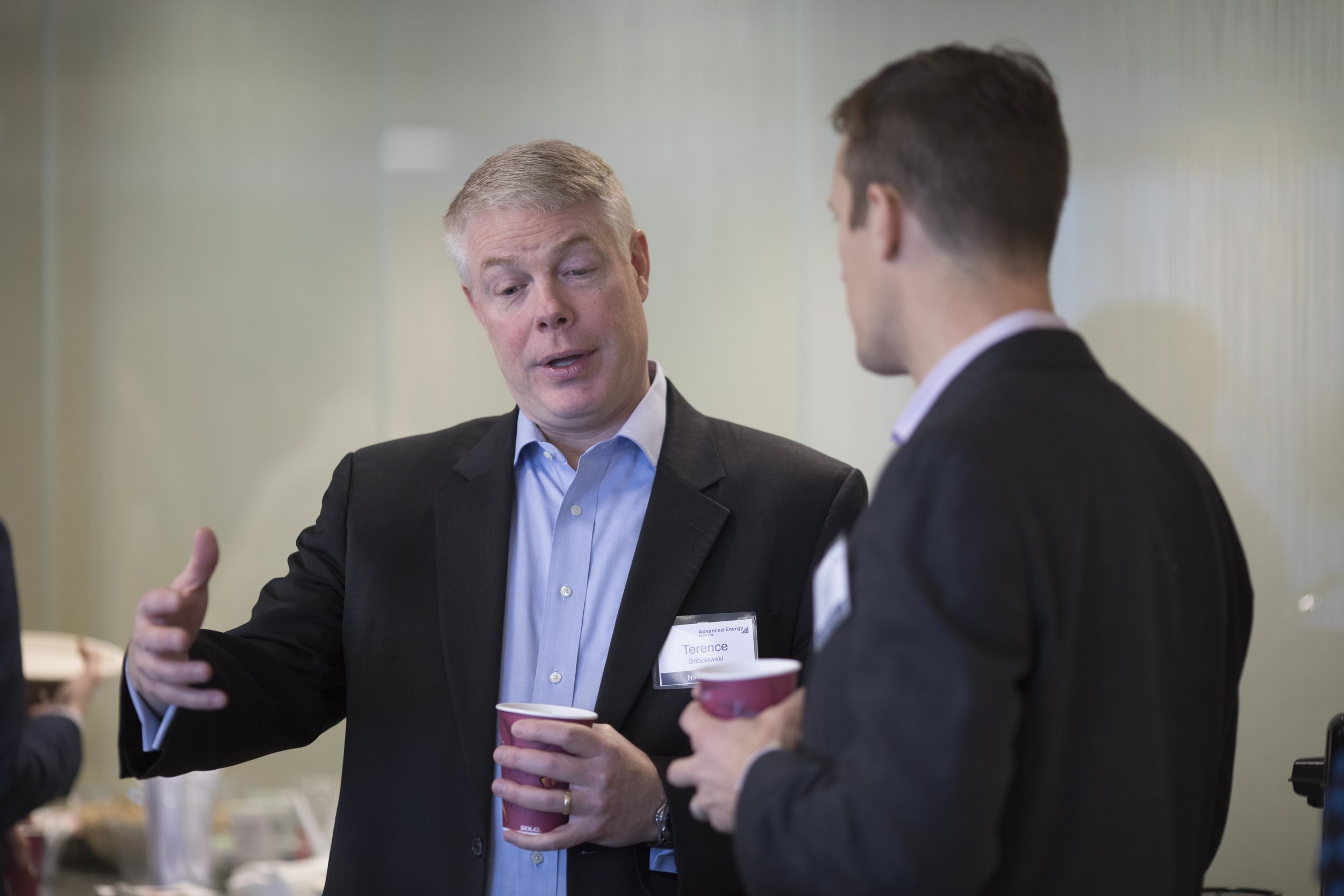- Peter Kelley-Detwiler - Boston Advanced Energy
We closed out our inaugural season in Boston with a great line-up, bringing multiple perspectives to a challenge that requires an enormous amount of coordination. Speakers at the breakfast covered a wide range of related topics from how to get more ridership on public transit and address their needs, to how we decarbonize transportation, to how do we deal with the specific issues concerning EV deployments and charging infrastructure?
The speaker roster included:
· John (Tad) Read, AICP Senior Deputy Director, Boston Planning & Development Agency
· David Block-Schachter, CTO, Massachusetts Bay Transportation Authority
· Larry Chretien, Executive Director, Mass Energy Consumers Alliance
· Penni McLean-Conner, SVP & Chief Customer Officer, Eversource Energy
· Terence Sobolewski, SVP & Chief Customer Officer, National Grid US
· Ashley Horvat, Vice President Public & Private Partnerships, Greenlots
From the outset, as Tad Read laid out the City’s plans for 2030, it became obvious that meeting ambitious future carbon-reduction goals must involve all aspects of transportation and how society moves people from point A to point B. The plans are ambitious: Among other goals, the City wants to increase public transit ridership one third by 2030 and reduce single occupancy in vehicles. The MBTA’s David Block-Schachter is building customer-facing tools to improve the T rider experience and boost the numbers.
Meanwhile, Massachusetts wants to see 300,000 EVs on its roads by 2025, a heavy lift. Larry Chretien of Mass Energy pointed out that if the progress were to be linear, it would involve selling 240 EVs every month. He also pointed to the need to electrify bus fleets as well, where total cost of ownership is already less for EVs than diesel buses.
It also became very clear during the conversation that the solutions to these problems are often complex and interlinked, requiring a great deal of collaboration across multiple stakeholders. National Grid’s Terry Sobolewski emphasized the need for three revolutions – electrification, autonomy, and ride sharing - to occur in an interlinked fashion.
All of these solutions require a thorough understanding of the customer, in terms of what they want in everything from public transit fare collection systems to convenient charging of vehicles. In all cases, for success to occur, the intelligent energy conversation is a necessary prerequisite.
As Eversource’s Penni Mclean-Conner concisely put it, one has to start with the conversation, which then leads to action and commitment. For Eversource, the conversation that led to regulatory approval of their plan began over two years ago. At the same time, coordinated action is critical if we are to avoid mis-steps.
To take a simple example raised concerning EVs: Eversource just got an approval for a $45 million plan for its EV Make-Ready Infrastructure Program. This program will support approximately 4,000 charging stations on up to 500 sites. One key challenge involves where to locate this infrastructure, and the utility is having some challenge in actively recruiting host sites. During the conservation, it became clear that the City of Boston is evaluating this exact same issue. City officials do not want to locate chargers on the street (a la parking meters) as they are evaluating new rights of way on city streets related to bicycles and other means of transportation. However, they are very keen to see charging stations located on municipal parking lots. The conversation then turned to how Eversource could coordinate with the City on that issue – a concrete example of why it is important to put the right people in the room to discuss these issues.
As the conversation wrapped up, the speakers were asked by a smiling moderator if they would be amenable to returning a year from now and ‘reporting out’ on their progress to date and future plans. The suggestion was met with laughter and wholehearted agreement that this would be a good idea. So we have our agenda set for 2018!
As the City of Boston continues to pursue its Climate Action Plan, BAE Stakeholders will convene every quarter with the Advanced Energy Group. The next event on the topic of Resiliency & Critical Infrastructure will be held on March 15, 2018. To request and invitation, please visit AEG Participate or Join for membership opportunities.
Cross-city AEG content (highlight videos, podcasts, etc) is accessible via our Interact page.
Advanced Energy Group is a stakeholder member-supported organization committed to developing and delivering advanced energy policies and solutions in key cities. Stakeholder sessions are by invitation only. For details of our programming please visit:
AEG Event Calendar | AEG Podcasts | AEG Videos on Vimeo | AEG LinkedIn | AEG Twitter





